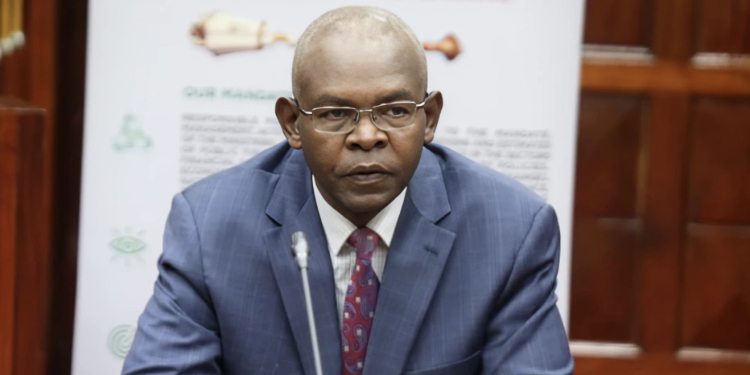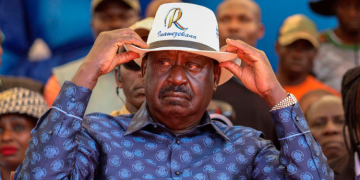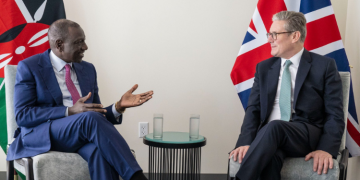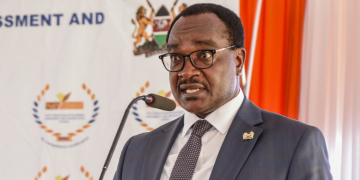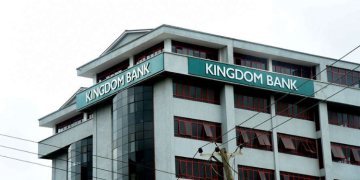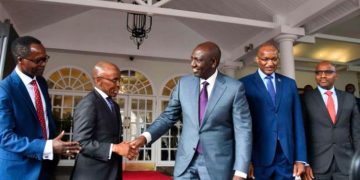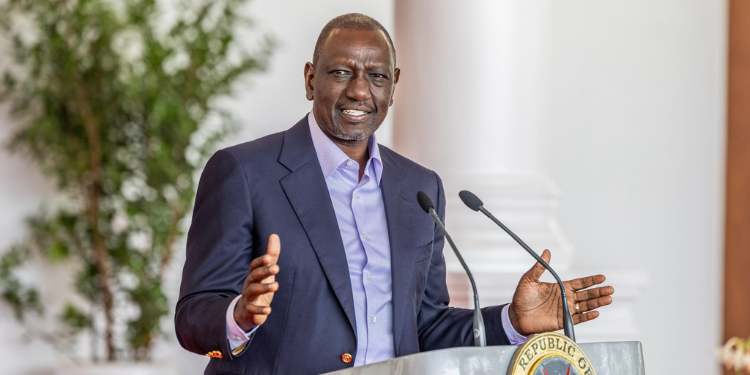The government borrowed Ksh 1.25 trillion in the just-ended financial year, according to new figures from the Central Bank of Kenya (CBK), a move that has sparked growing concern among economists and citizens over the country’s debt trajectory.
According to CBK’s Weekly Bulletin released on August 29, the state borrowed Ksh 916 billion from the domestic market and an additional Ksh 334 billion from external sources between June 2024 and June 2025.
The surge in debt pushed the total public debt stock to Ksh 11.81 trillion by June 2025, representing 73% of the estimated 2024 GDP of Ksh 16.2 trillion.
The new debt alone amounted to 7.7% of the GDP.
Kenya Borrowing Threshold
Kenya’s debt ceiling was repealed in 2022 in favor of a debt anchor set at 55% of GDP in present value terms, but current levels have far exceeded that threshold when assessed in nominal terms.
According to the report, banking institutions remain the largest holders of government domestic debt (45%), pension funds, and insurance companies also maintain exposure, raising systemic concerns.
The figures have reignited debates about the government’s fiscal priorities. Critics argue that, although development expenditure totaled a modest Ksh 335 billion, the bulk of the new borrowing was allocated to recurrent spending, including salaries, subsidies, and politically driven programs.
Also Read: Research Reveals Cockroach Milk Is Three Times More Nutritious Than Cow’s Milk
Many Kenyans expressed disbelief over the scale of the borrowing and its implications for the country’s future.
What are Citizens Saying
“The country is on auction to looters. In a short while, it will be premium tears,” commented Gisore Onyangore in a viral post.
Others criticized the apparent use of borrowed funds for recurrent expenditures rather than long-term investments.
“Kenya isn’t just borrowing money, it’s borrowing tomorrow’s growth to fund today’s consumption,” said Gabriel General.
Economic commentator Ephraim Njega shared a detailed breakdown of the debt figures released by the Central Bank of Kenya (CBK), warning of dire consequences.
“The government borrowed Ksh 916 billion from the domestic market and the rest from external sources,” Njega wrote.
“Total public debt now stands at KSh 11.8 trillion, 73 percent of the GDP. This is not refinancing; this is fresh, unprecedented borrowing. Nobody should be defending such fiscal recklessness.”
Some users linked the borrowing to corruption and self-interest among political elites.
“To those in leadership, no one knows or cares what will happen with this borrowing in the future,” Gaitho Ritho said.
Also Read: EXPLAINED: How Kenyans Will Repay Bank Loans Under the New CBK Rules
“What they care about is the cut they will get as days roll on and their term comes to an end.”
Appetite for Borrowing
Others expressed concerns about potential political instability arising from rising economic pressures.
“I’m not a doomsayer, but I’m starting to think that for the current politicians to escape jail time, there might be an instigation of chaos, either constitutional or otherwise,” Gatei Mwangi warned. “I earnestly hope I’m wrong.”
Karume Wa Baru summed up the mood with a bleak reflection on the state of the economy and public trust.
“The government has an appetite for borrowing; the people have an appetite for buying bonds. When you look at the whole thing, it’s really depressing times for the whole country,” he wrote.
As public concern grows, calls are mounting for greater transparency, accountability, and a national conversation on debt sustainability and fiscal discipline.
Follow our WhatsApp Channel and X Account for real-time news updates
